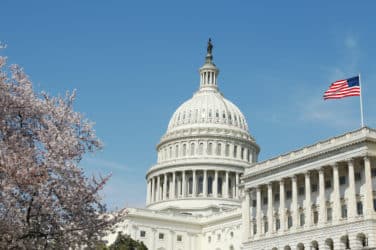Security-token trading on a regulated exchange has come a step closer as BOX Digital Holdings and Tzero have entered into a letter of intent to form a listing exchange for security tokens.
The to-be-named venture will rely on Tzero’ technology expertise and BOX’s regulatory experience, according to Lisa Fall, CEO of BOX Digital Holdings and president of Boston Options Exchange.

Lisa Fall,
BOX Digital Holdings
“We are not building a self-regulatory organization from scratch with a Form-1 filing,” she told Markets Media. “We are going to use an existing SRO license that we have and have the existing regulatory body oversee and regulate the new venture. There are 22 SRO licenses out there; this does not make 23. It just adds utility to one of the 22 that are out there.”
The US Securities and Exchange Commission granted BOX Options Exchange the status of a self-regulatory organization in 2012 after Nasdaq acquired the exchange medallion of its parent exchange in 2008.
There is much work ahead with the SEC and its Division of Trading and Markets to develop a rule set that will protect investors and provide transparency to the market.

Patrick Byrne, Tzero
“There is going to have to be a lot of changes in the regulations,” said Patrick Byrne, executive chairman of Tzero. “I think that the regulations are going to have to evolve to accommodate security tokens over time.”
“As soon as the SEC is comfortable with what we are trying to do, we expect an approval,” Fall added.
The next step for the joint venture is to complete its final documentation, according to Byrne.
“We anxious to move forward,” he said. “But there are no predictions for times like that, but I expect that to be measured in days or weeks.”
The endeavor has a steep road ahead of it, noted Richard Johnson, vice president market structure and technology, at analyst firm Greenwich Associates. “They are building an exchange for securities tokens, which is different from saying ‘We’re trading crypto.'”
Fall declined to provide a timeline of the exchange’s development beyond saying that she would like to see it start trading “as soon as possible.”
Byrne, however, noted that Tzero is spinning up the enabling technology this quarter.
“The questions after this quarter are the legal steps and things that have to be taken,” he said. “I certainly hope to see something trading this year and maybe in Q3.”
In the meantime, Tzero plans to continue to trade blockchain-based securities on its SEC-approved alternative trading system, which it has done for the past three years, until regulators approve the new exchange.
From a revenue perspective, Fall expects that listing and transaction fees would be the exchange’s two main revenue streams.
When asked if the new exchange would offer complementary services, such as providing help with initial coin offerings, Fall said that the subject has had not been raised in discussions. “But we are open to possibilities,” she added.
The joint venture is just the tip of the iceberg for trading security tokens, according to Johnson. “You’ll see other people do similar things as the market evolves, ” he said.
Johnson also noted that securities tokens eventually will become the preferred method of issuing securities.
“The adoption will take a while, maybe five to ten years even,” he explained. “It certainly will not happen overnight, but it will take off. Stocks are in danger, and security tokens are the invasive species.”






